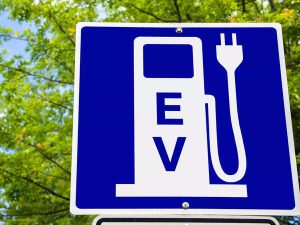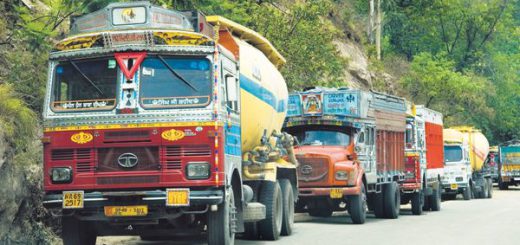India has an EV super app coming: Govt working on one-stop shop for all key info
State-run Convergence Energy Services Limited (CESL) is in the process of collating information from the private sector for the super app, which is scheduled to go live in the next 4-6 weeks. The app will detail availability, charger types and charging tariffs, allowing users to make and change reservations at nearby stations.
To accelerate adoption of electric vehicles and ease range anxiety of end users, the government is working on launching a master app to act as a one-stop shop that will provide information on location and availability of vehicle charging stations. State-run Convergence Energy Services Limited (CESL) is in the process of collating information from the private sector for the super app, which is scheduled to go live in the next 4-6 weeks.
The app will detail availability, charger types and charging tariffs, allowing users to make and change reservations at nearby stations. Mahua Acharya, Managing Director, CESL, told ET that the government’s intent is to put in place a mutually beneficial arrangement for all stakeholders. “Apart from information on the network of public charging stations, the app will reflect information shared by OEMs, enhancing visibility and traffic at private charging points. Consumers will get peace of mind knowing that they can readily access information and make reservations at nearby stations if they need to charge their vehicles on the go”, added Acharya. According to a report by government think tank Niti Aayog, there were about 1,827 charging stations operational across the country in 2020.
The Department of Heavy Industries (DHI) has sanctioned establishment of 2,877 public charging stations at an expense of over Rs 500 crore in 68 cities across 25 states/UTs under Phase-II of FAME, the roll-out of which is underway. Industry estimates suggest that in addition to the above, there are 15,000-20,000 private charging stations, against a requirement of about 400,000 such points in the country. Acharya said that as most users charge electric vehicles at home or in office complexes, the government is looking at setting up a dense network of e-highways to support inter-city travel. “We need an extensive network of charging stations at strategic locations, which are safe, well-lit, well-covered and where users can top-up their electric vehicles within an hour,” she said.

“This will help cut down battery size, make electric vehicles more affordable, ease range anxiety and speed up adoption of e-vehicles, even for long-haul travel.” CESL has accordingly designed a service procurement model to involve the private sector for setting up a charging ecosystem. In this public-private-partnership model, CESL will partner with companies whose job will be to invest in and operate these stations across the expressways and highways. This will enable electric car buyers to take their cars out for long-haul journeys. Overall, CESL plans to aggregate demand and establish 10,000 charging stations in the next three years under the FAME II Initiative. Shailesh Chandra, MD, Tata Motors NSE 0.19 % Passenger Vehicles and Tata Passenger Electric Mobility, said charging infrastructure is very critical in early phases to encourage its adoption. Tata Motors, on its part, would like to complement efforts made by central and state governments to accelerate faster adoption of electric vehicles through multiple initiatives including support of charging infrastructure development and enabling customers with Apps to track charging stations. “This will play a key role in faster adoption of EVs,” added Chandra. Experts say, charging infrastructure is one of the key imperatives for EV adoption.
To meet the infrastructure requirements of its customers, Tata Motors has adopted a unique approach to leverage the synergies of Tata Group companies to provide EV solutions. Hemal Thakkar, Director – Transport, Logistics & Mobility, CRISIL Ltd NSE -1.53 %, in its recent EV reports shared that top 10 cities used to account for more than 50% of the sales across segments in Electric Vehicles in FY21. However, in FY22 the spread of EVs across segments has proliferated beyond top 10 cities, which now account for anywhere between 20 and 30% of EV sales. Last month, CESL discovered prices for setting up 810 electric vehicle charging stations (EVCSs) across 16 Expressways and National Highways covering 10,275 kilometres across the country.
Suman Mishra, CEO of Mahindra Electric Mobility thanked the Government of India for leading the initiative to integrate and launch a one-stop super app for EVs and said, “It will help reduce range anxiety amongst EV owners and enable faster adoption across the country. We look forward to its implementation.” The selected corridors include busy routes like the Mumbai-Pune highway, Ahmedabad-Vadodara highway, Delhi-Agra Yamuna expressway, Eastern Peripheral Expressway, Hyderabad ORR expressway, and Agra-Nagpur Highway. These charging stations are expected to be established in the next 6-8 months.
Providing fast DC connectors, CESL will install 590 chargers of 50kW capacity and 220 chargers of higher 100kW capacity. The chargers with 50kW capacity will be available every 25 kilometres and the 100kW chargers every 100 kilometres. “For e-3ws charging infrastructure is extremely critical as that improves asset utilization and thereby viability of electric 3 wheelers. In case of e-2Ws many companies have come up with detachable batteries which is helping the cause and beyond commercial applications the range anxiety concerns are low,” added Thakkar.
Read More At:-https://cutt.ly/pXyTXSF




Recent Comments